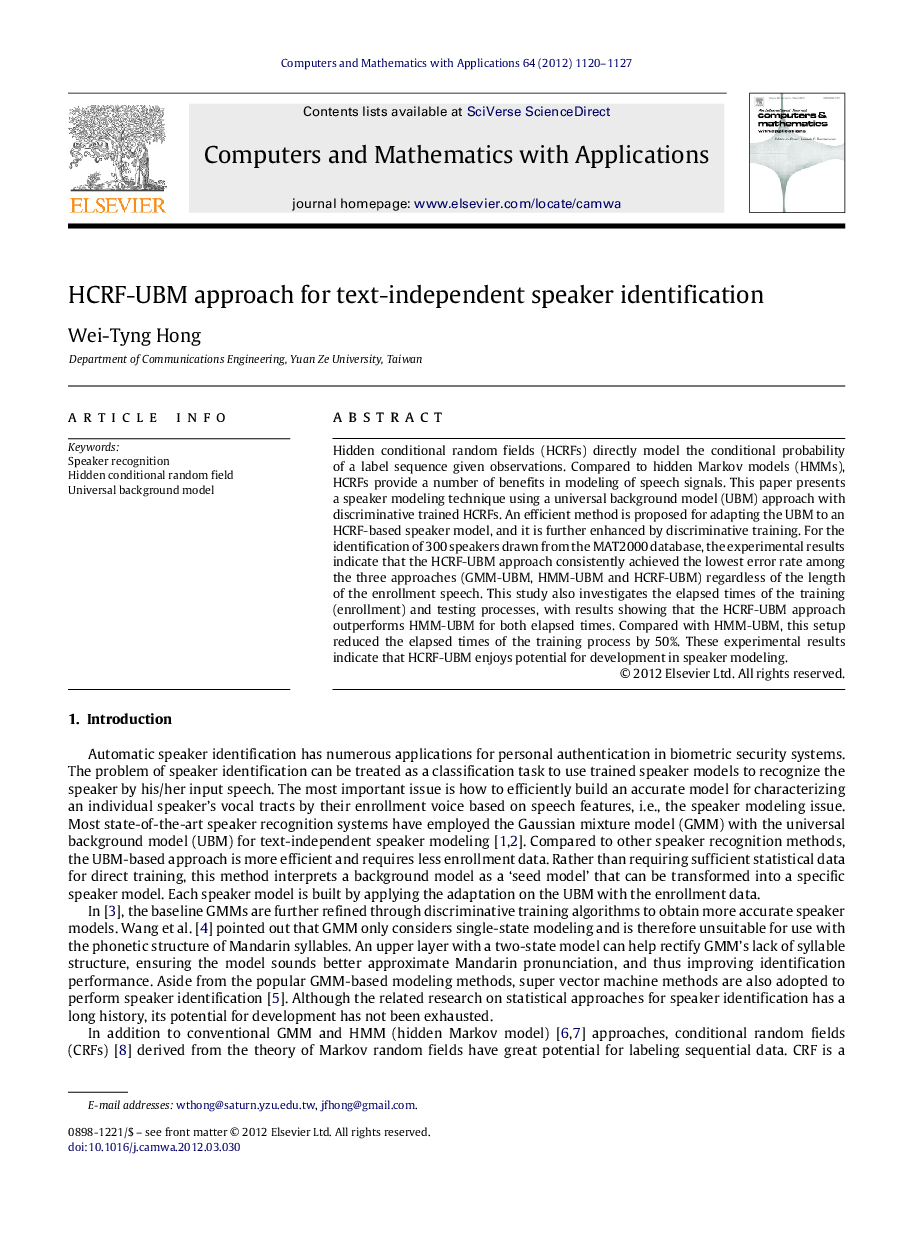| Article ID | Journal | Published Year | Pages | File Type |
|---|---|---|---|---|
| 468529 | Computers & Mathematics with Applications | 2012 | 8 Pages |
Hidden conditional random fields (HCRFs) directly model the conditional probability of a label sequence given observations. Compared to hidden Markov models (HMMs), HCRFs provide a number of benefits in modeling of speech signals. This paper presents a speaker modeling technique using a universal background model (UBM) approach with discriminative trained HCRFs. An efficient method is proposed for adapting the UBM to an HCRF-based speaker model, and it is further enhanced by discriminative training. For the identification of 300 speakers drawn from the MAT2000 database, the experimental results indicate that the HCRF-UBM approach consistently achieved the lowest error rate among the three approaches (GMM-UBM, HMM-UBM and HCRF-UBM) regardless of the length of the enrollment speech. This study also investigates the elapsed times of the training (enrollment) and testing processes, with results showing that the HCRF-UBM approach outperforms HMM-UBM for both elapsed times. Compared with HMM-UBM, this setup reduced the elapsed times of the training process by 50%. These experimental results indicate that HCRF-UBM enjoys potential for development in speaker modeling.
